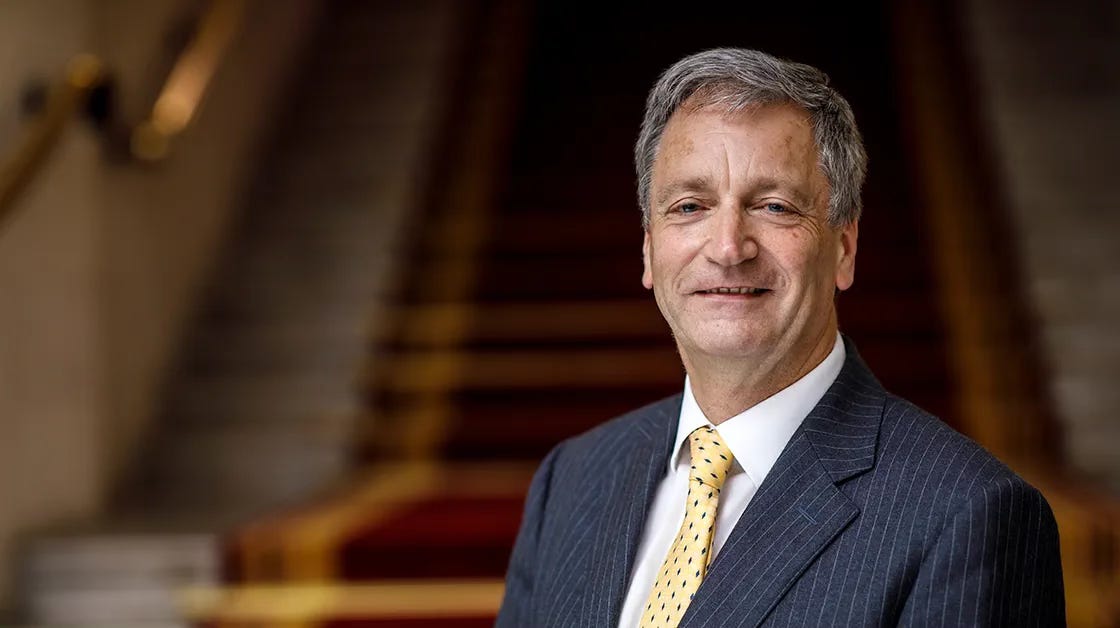AI to replace lawyers?
Law Society president calls for government-backed advice service
The leader of the solicitors’ profession in England and Wales has said the government should create a free AI-powered tool, like NHS 111, that would help people understand their legal problems and direct them to the help they need.
In a letter offered to newspapers for publication, Richard Atkinson said the project could save the system around £72 million over five years.
The Law Society president wrote:
The High Court warned lawyers that relying on fake AI-generated citations, even unknowingly, could lead them to face serious professional consequences and risk a wasted costs order. While legal professionals can face severe sanctions when using AI inappropriately, the public should not be left exposed either when they are using AI to understand and resolve their legal issues.
The Law Society, as part of its newly published report “21st century justice”, is asking the government to create a new AI-powered tool to help people understand their legal issues and find the best way to address them. It will be a simple-to-use government-backed tool, like the online NHS 111 service that guides people to the right support on common legal problems such as divorce, employment, housing and wills. Just like health and education, justice is a public service and as such it should not be the privilege just of those with means. A cost-benefit analysis found that this tool could save the justice system around £72 million over five years.
The aim is to modernise the system and level the playing field for anyone seeking justice. To reach a solution that serves the interests of the public, the professional world and, above all, for the sake of justice, everyone needs to be consulted: lawyers, technology firms and people.
We must all work together to future-proof justice by using innovation and all available tools safely.
Comment
At first sight, it seems odd to see a lawyer recommending that people should seek legal advice from a machine. Recommending that a service which may get lawyers into serious trouble should be fine for non-lawyers appears even odder.
And the comparison with NHS 111 seems a misleading one. That service has been operating for some years, long before the current advances in AI. It works through what I understand to be a decision tree. You are asked a series of questions — starting with urgency, age, sex, symptoms and so on. The next question you are asked depends on the answers you have previously given. Eventually, you will see a screen telling you what to do.
AI works differently. You are asked to explain your problem in your own words. The system tries to understand you and then gives you a detailed answer.
Either way, a new advice service would involve setting-up and running costs. Tests for reliability would surely be required.
Meeting the needs of those who cannot otherwise get legal advice is a noble aspiration. This proposal should, perhaps, have attracted more attention when the Law Society first raised it in June. It ties in with the judge-led public-private partnership envisaged by the master of the rolls. But AI needs much more thought.



Jase Ayathori is in my view right.
I have known President Richard Atkinson for decades and have much respect for him and at least what he for the Society is proposing is innovative and potentially an enhancement to access for the impoverished and otherwise disadvantaged many, rather than a pruning of for example jury trial rights. There are options to what seems to be the starting premise for so much emanating from government of deciding which bits of the service can be chipped away at in order to arrive at the soothing objective of movement being equated to progress.
However, should this or any future administrations be attracted to Richard’s ideas then to that government I say “‘ware the usual mega- entities of Crapita, Serco or their deftly named offshoots and the “guarantees” to save mega-bucks without the service delivered becoming the least bit coarsened or diminished. The “graveyard” is full of examples of such outsourcing leading to shoddier, less comprehensive and indeed a less trustworthy service.
This is an interesting advance. AI is only as good as the prompts it receives.
I expect support and admin staff could be easily replaced.
But lawyers will have to be prudent and smarten up on their technical use of AI and not blindly accept any output from AI tools as being, valid particularly with the citation of cases.